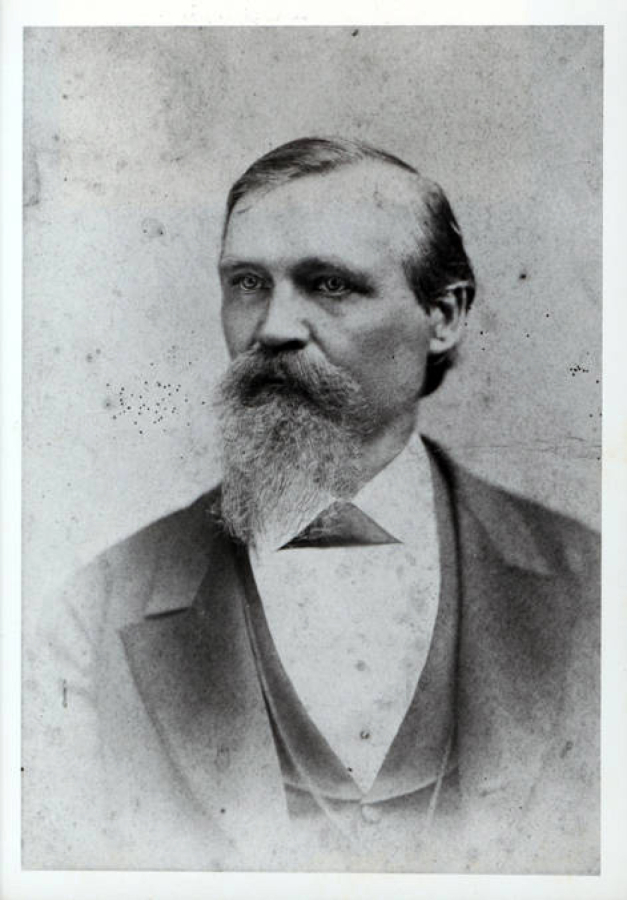After finishing the most protracted military march on record, United States Army Capt. William Wing Loring served as commander of the Columbia Barracks (later known as the Vancouver Barracks). He rose to the rank of major general on two continents.
Born in North Carolina and raised in Florida, Loring (1818-1886) found himself in the final scuffles of the Seminole War as a youth of 14. At 17, he ran away to fight for Texas independence, where Sam Houston made the boy his aide — at least until his father came to claim him.
After completing his education, Loring joined the Florida bar in 1842 and then held seats in the state Legislature and Senate.
In 1846, bored with civilian life, he used his connections to gain a captaincy in the Regiment of Mounted Rifles, a unit intended to set up outposts along the Oregon Trail to protect travelers. The Mexican American War diverted the regiment to Mexico, where Loring shattered his left arm while storming the Castle of Chapultepec.
Once Loring’s amputated arm healed, the Army promoted him to brevet-major ordering him to lead the Mounted Rifles from Fort Leavenworth to Fort Vancouver, a military post established in response to the Whitman Massacre at the Hudson’s Bay compound jointly occupied by the British and Americans. His light cavalry would reinforce the meager contingent at the Northwest fort. The regiment trudged westward with 700 horses, 1,200 mules and 171 supply wagons.
Taking the nearly 2,000-mile route, they confronted thunderstorms, rising rivers, cholera and mud. Besides hardships, Loring faced complaining and rebellious soldiers. Many joined the march hoping to defect to the California goldfields by hiding among the gold seekers headed West.
Loring recaptured some, but his offer of $200 for any deserter ended escapes.
Troubled by nearly mutinous wagoners, Loring sent one back to Fort Kearney in chains.
Arriving at Fort Vancouver, Loring relieved Maj. John S. Hatheway of responsibility in November 1849.
Loring led the department for two years before being transferred to command other frontier forts. He fought Indigenous people and gained promotion to colonel.
When the Civil War broke out, Loring had no mixed feelings about choosing sides.
Abandoning the Union Army he’d served honorably, he accepted a major general rank in the Confederacy. Wounded again in 1864 during the fight at Ezra Church, he recovered and led Southern rebels until Lee surrendered.
Gen. W.T. Sherman recommended Loring and about 50 other Confederate officers for Egyptian service. Loring left for Africa and an inspector general position. The Ethiopians walloped the Egyptians in 1878 and the losers faulted the Americans.
After departing Egypt in 1879, Loring stopped in New York wearing the rank of fereek pasha (major general), chief of staff and inspector general of the Egyptian Army. Returning to Florida temporarily, he failed a run for the state Senate. Then he retired to New York, where he wrote his Egyptian memoir before dying in 1886.
Martin Middlewood is editor of the Clark County Historical Society Annual. Reach him at ClarkCoHist@gmail.com.



